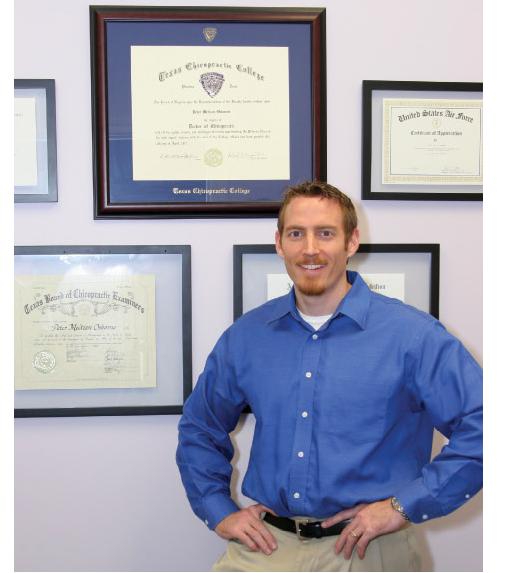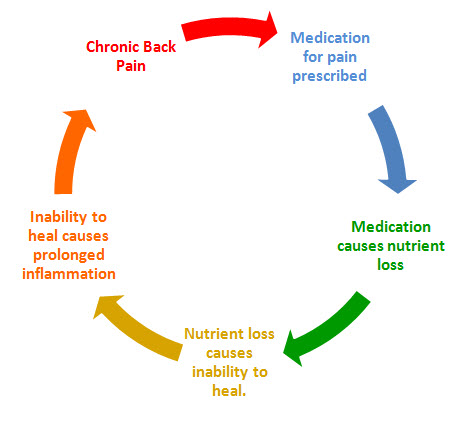Shift work is once again linked to an increased risk for cancer.
Multiple studies have linked night shift work to an increased risk for cancer.1-7
Now a new study in the American Journal of Epidemiology links rotating shift work
to an increased risk for prostate cancer in men.
1. Motohashi Y, Higuchi S. Shift work and health. Occup Health Rev 1999;12:125–44.
2. Davis S, Mirick DK, Stevens RG. Night shift work, light at night, and risk of breast cancer. J Natl Cancer Inst
2001;93:1557–62.
3. Hansen J. Increased breast cancer risk among women who work predominantly at night. Epidemiology 2001;12:
747.
4. Tynes T, Hannevik M, Andersen A, et al. Incidence of breast cancer in Norwegian female radio and telegraph
operators. Cancer Causes Control 1996;7:197–204.
5. Megdal SP, Kroenke CH, Laden F, et al. Night work and breast cancer risk: a systematic review and meta-
analysis. Eur J Cancer 2005;41:2023–32.
6. Schernhammer ES, Laden F, Speizer FE, et al. Rotating night shifts and risk of breast cancer in women
participating in the Nurses’ Health Study. J Natl Cancer Inst 2001;93:1563–8.
7. Hormonal resynchronisation—an occupational hazard. Lancet Oncol 2002;3:323.
8. Am J Epidemiol 2006;164:549–555
Dr. Osborne’s Comment…
Improper sleep habits are a major contributing factor to poor health. Many
studies have linked inadequate sleep to increased risk for cancer, autoimmune
diseases, high blood pressure, diabetes, hormone disruption, and more. The
body has a natural circadian rhythm. The hormone melatonin is secreted in
higher amounts through out the night during sleep. This hormone has
antioxidant properties as well as cancer suppressing effects. Inadequate sleep
suppresses melatonin pathways and diminishes its beneficial effects.
Studies show that the most beneficial sleep is between the hours of 10
pm and 2 am
Your body repairs and heals itself during sleep.
Artificial light sources in the bedroom should be turned off to prevent
disruptive sleep.
Keep in mind that some people require more sleep than others.
Generally speaking people require between 6 and 10 hours of sleep.
For a safe and natural alternative to help with sleep
 Shift work is once again linked to an increased risk for cancer.
Shift work is once again linked to an increased risk for cancer.
Multiple studies have linked night shift work to an increased risk for cancer.1-7
Now a new study in the American Journal of Epidemiology links rotating shift work
to an increased risk for prostate cancer in men.
- Motohashi Y, Higuchi S. Shift work and health. Occup Health Rev 1999;12:125–44.
- Davis S, Mirick DK, Stevens RG. Night shift work, light at night, and risk of breast cancer. J Natl Cancer Inst 2001;93:1557–62.
- Hansen J. Increased breast cancer risk among women who work predominantly at night. Epidemiology 2001;12:747.
- Tynes T, Hannevik M, Andersen A, et al. Incidence of breast cancer in Norwegian female radio and telegraph operators. Cancer Causes Control 1996;7:197–204.
- Megdal SP, Kroenke CH, Laden F, et al. Night work and breast cancer risk: a systematic review and meta-analysis. Eur J Cancer 2005;41:2023–32.
- Schernhammer ES, Laden F, Speizer FE, et al. Rotating night shifts and risk of breast cancer in women participating in the Nurses’ Health Study. J Natl Cancer Inst 2001;93:1563–8.
- Hormonal resynchronisation—an occupational hazard. Lancet Oncol 2002;3:323.
- Am J Epidemiol 2006;164:549–555
 Dr. Osborne’s Comment…
Dr. Osborne’s Comment…
Improper sleep habits are a major contributing factor to poor health. Many
studies have linked inadequate sleep to increased risk for cancer, autoimmune
diseases, high blood pressure, diabetes, hormone disruption, and more. The
body has a natural circadian rhythm. The hormone melatonin is secreted in
higher amounts through out the night during sleep. This hormone has
antioxidant properties as well as cancer suppressing effects. Inadequate sleep
suppresses melatonin pathways and diminishes its beneficial effects.
- Studies show that the most beneficial sleep is between the hours of 10 pm and 2 am.
- Your body repairs and heals itself during sleep.
- Artificial light sources in the bedroom should be turned off to prevent disruptive sleep.
- Keep in mind that some people require more sleep than others.
- Generally speaking people require between 6 and 10 hours of sleep.
For a safe and natural alternative to help with sleep
 If you have been prescribed medications and still suffer with this problem, consider implementing the strategies discussed in the video above. If you still have problems beyond implementing these lifestyle changes seek a functional medicine doctor’s assistance. Functional medicine doctors focus more on the causes and origins of disease vs. treating symptoms.
If you have been prescribed medications and still suffer with this problem, consider implementing the strategies discussed in the video above. If you still have problems beyond implementing these lifestyle changes seek a functional medicine doctor’s assistance. Functional medicine doctors focus more on the causes and origins of disease vs. treating symptoms.



 Shift work is once again linked to an increased risk for cancer.
Shift work is once again linked to an increased risk for cancer.





